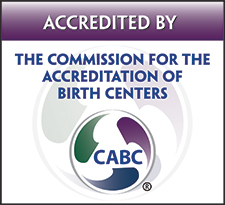From the moment you see the double line (or maybe the “Pregnant” versus “Not Pregnant”…after all, technology has evolved), you’ll be bombarded with a myriad of screens, tests, and interventions, some of which are based on evidence and some that aren’t. Here’s 10 things you can safely skip during your pregnancy, if you wish:
1) Ultrasounds done without a medical reason
For many women, just one ultrasound during pregnancy–the one done around 20 weeks to take a thorough look at your baby’s anatomy–.can be enough.
Some women may also benefit from a first trimester ultrasound if they have irregular periods or aren’t quite sure of the pregnancy dating, or if they have a history of miscarriages, have experienced bleeding, or otherwise just need reassurance the pregnancy is progressing normally.
But ultrasounds done just to “check on things” or “take a look”? You can say no thank you!
2) Routine Urine Drug Testing…especially those done without consent.
When I got to the Buffalo, New York area, I was surprised to find that clients transferring to my care had been subjected to a routine urine drug test. In Chicago, routine drug tests were not a part of prenatal care which is why I was taken aback.
While ACOG recommends routine screening for drug use, screening refers to the process of asking women questions regarding possible drug use, not testing urine. And in fact, ACOG says, “Routine laboratory testing of biologic samples is not required.” In my opinion, women should at the very least be consented for a urine drug screen.
3) Cervical exams during pregnancy
In the absence of a problem such as preterm labor or bleeding, routine cervical exams during pregnancy are completely unnecessary. I’ve heard of some providers beginning to do cervical exams as early as 36 weeks!
The truth is, what your cervix is upon examination is just a snapshot, not a prediction of where you’ll be a day, week, or month from now. Some women can have a closed cervix and go into labor a day later whereas others may walk around 3 or 4cm dilated for weeks!
4) Glucola…the super sweet drink used to screen for gestational diabetes
While not all women necessarily need to be screened for gestational diabetes (you may opt out if you fit a very strict criteria as defined in this article by Aviva Romm), there are some alternatives to the glucola for those who choose screening. Unfortunately, not much research has been done on acceptable alternatives, so its hard to say if they are as effective as the glucola drink, but thus far, jelly beans have been found to one possible alternative.
5) Care under a doctor
Studies show that midwife-led care is associated with better outcomes for mothers and babies…and that women are more satisfied with midwifery care compared to the traditional medical model.
Choosing a care provider will drastically influence the outcomes for a mother and her baby as well as the options and choices available to her during her pregnancy and birth.




